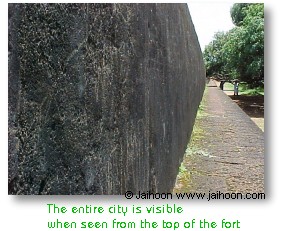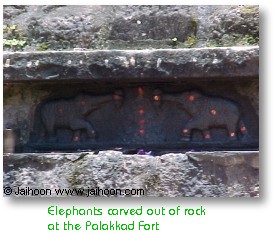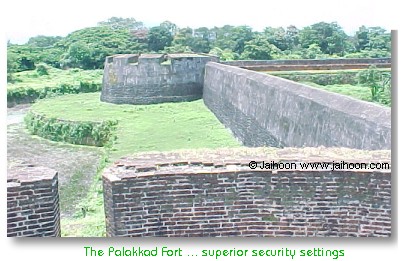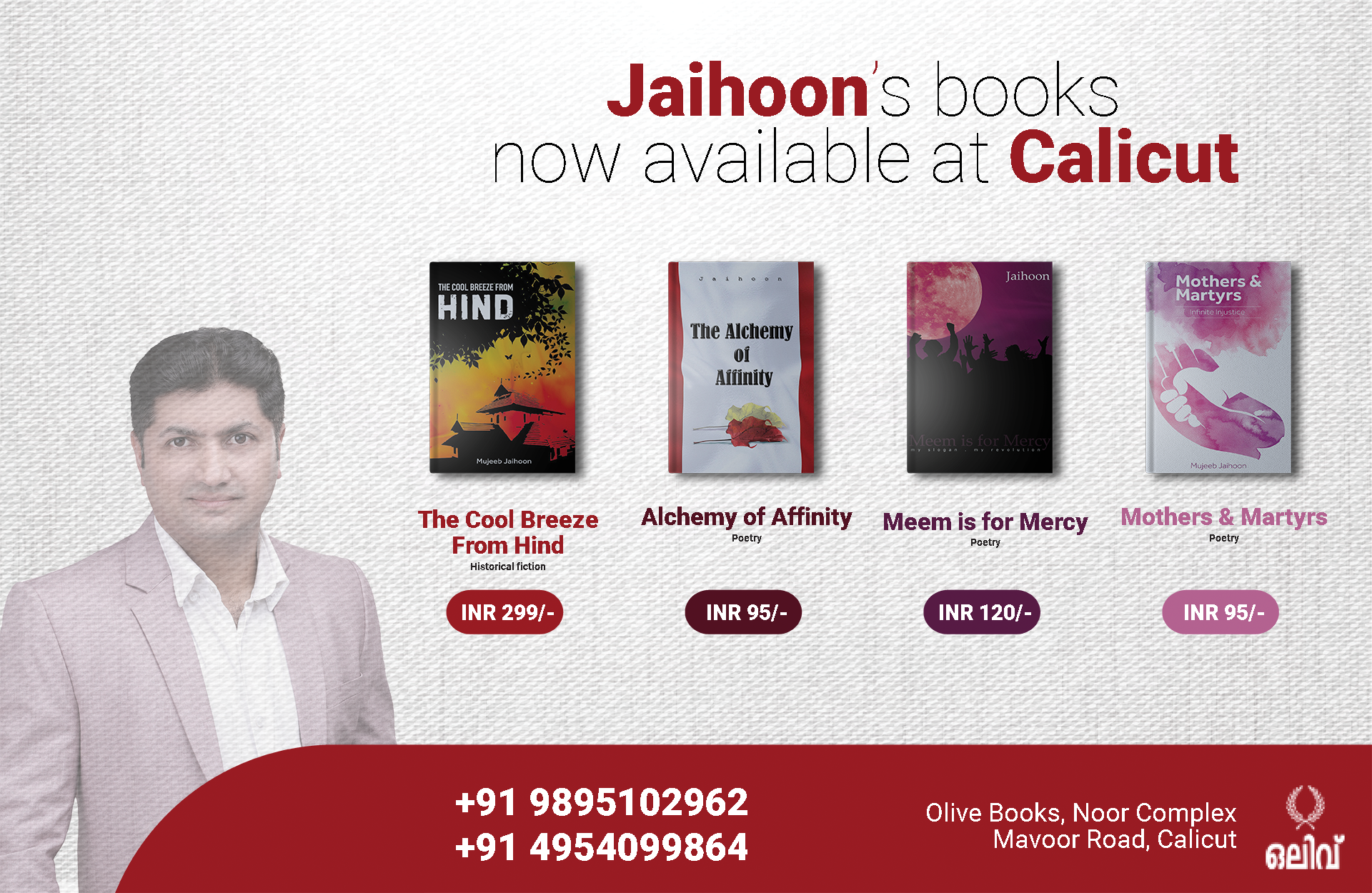Tipu Sultan had ruled over Malabar for about 36 years. He had introduced many administrative reforms in the land especially issues relating to land distribution. The land owning class could not tolerate his welfare approach towards the poor farmers. Hence, during the Mysore Rule, they took refuge with the Thiruvidamkur kingdom. It was natural for the oppressive landlords to hate and oppose the support of Tipu Sultan towards the oppressed class of the society. 
Tipu’s army consisted of many communities and the Muslims of Malabar were active in his Kerala section of the kingdom. It is highly possible that the fearless Tipu may have met the versatile Umar Qazi, although history does not offer any solid evidence for this.
* * *
* * *
When the oppressive British rule was imposed on Malabar in 1792, the landlords, who were earlier in exile, returned. The British was prepared to install them as full-fledged landlords. Before leaving for exile, the landlords had sold their land for a meager price to the Muslims of the place. When they returned, the land they had sold had become evergreen with coconuts and other crops. In the clashes that followed between the two parties, the British sided with the landlords. The only king who fought until death despite being sure of his defeat
The Anglo Mysore War
Two centuries ago, Tipu Sultan fell martyred in the Srirangam fort marking the end of Anglo Mysore war. He could have remained safe in the invincible fort had he stayed back.  The war had begun at a time least expected by Tipu. The English East India Company had declared war at a time when they were sure of no support would come to Tipu from neither the French nor the help from Persia or Afghanistan nor any kind of assistance from the native kingdoms. They began attacking with no reason. Although East India Company and allies were confident of defeating Tipu, they were doubtful of entering the Srirangam fort. By repairing the damages without further ado, the Mysore army remained invincible in terrifying the enemies. The treacherous men in Tipu’s army
The war had begun at a time least expected by Tipu. The English East India Company had declared war at a time when they were sure of no support would come to Tipu from neither the French nor the help from Persia or Afghanistan nor any kind of assistance from the native kingdoms. They began attacking with no reason. Although East India Company and allies were confident of defeating Tipu, they were doubtful of entering the Srirangam fort. By repairing the damages without further ado, the Mysore army remained invincible in terrifying the enemies. The treacherous men in Tipu’s army
As was their usual practice, the British finally chose to bribe Tipu’s generals and guards. Although, generals close to Tipu had informed him about the treacherous men, the great patriotic son of India was not ready to accept his men as unfaithful. Hence the fort praised for its security was easily accessible to the enemies.
Mir Sadiq, the chief conspirator, started to give away the pay to the soldiers when the enemies entered the fort.
Allama Iqbal has referred to this traitor in the following couplet :
Jafar of Bengal and Sadiq of Deccan
Are a shame on humanity
Shame on religion and shame on country.
A heart-breaking scene
Tipu was having lunch when he heard some clatter not far away. Sensing some danger, he rushed to the scene like a fearless lion. What he saw was a heat-breaking scene – The British had entered the fort unscathed.  Realizing the bitter truth that he and his men were victims of cold-blooded betrayal, the Mysore Hero could have still escaped through the secret pathways along with his family, like other kings have always done in history. Or else he could have made peace signing a treaty and thereby saving his and family’s life. But here lies the greatness of the patriotic warrior of Indian independence. In midst of battle, he was offered the chances for treaty with the British. But his chivalrous reply became the slogan of bravery for all time to come : “One day’s life of a lion is preferable to hundred years’ of a jackal”.
Realizing the bitter truth that he and his men were victims of cold-blooded betrayal, the Mysore Hero could have still escaped through the secret pathways along with his family, like other kings have always done in history. Or else he could have made peace signing a treaty and thereby saving his and family’s life. But here lies the greatness of the patriotic warrior of Indian independence. In midst of battle, he was offered the chances for treaty with the British. But his chivalrous reply became the slogan of bravery for all time to come : “One day’s life of a lion is preferable to hundred years’ of a jackal”.
The sword of Tipu Sultan
What inspired Bhagvan Gidwani to write ‘ The sword of Tipu Sultan’ was this unfailing courage of Tipu. This is how he explains the reason for conducting research on Tipu and writing his books: A French research colleague came running from the rain to stand under he same umbrella while coming out of the Indian House in London. When Gidwani solicited him about the topic of research, the colleague replied, ‘my purpose is to explore history in search of a king who fought until death in spite of being certain of his defeat. When the author asked him to name the kings he had found, the reply he received was astonishing: “What I understand from my studies is that there was only one king who fulfilled such a condition: It was your Tipu Sultan.’ 
Struck with pride and embarrassment (embarrassed because Tipu was virtually unknown in his homeland), Gidwani set out to study on this brave king with an open-minded approach. Despite the author’s claim his book is not a historic novel, the work has received extraordinary acceptance from the laymen as well scholars.
The author is not a partisan of Mysore sentiment. His father was the president of Hindu Maha Sabha and as himself an officer of high standing. He was successful in rightly identifying the distorted facts the historical facts penned down by Anglo historians and those who followed them to deliberately malign the Mysore rulers. His victory lies in overcoming these distorted tales and rewriting the true story based on authentic records.
Tipu: A large hearted ruler
Gidwani tells us that Tipu was never a fanatic, neither a temple demolisher nor a bloody dictator rather he was a large-hearted ruler who practiced religious tolerance, respected all religions and its institutions alike and also gave grants for building their places of worship. Gidwani, a Hindu devotee and leader, need not take the sides with Haider Ali or Tipu Sultan.
But unfortunately, many of us have not yet fully reckoned to the accounts of this sincere historian. About 35 editions have come out of this bestseller book. A Calicut based publisher has also brought out a Malayalam version.
Even the so-called historians are adopting a fascist communal approach towards these facts on the great Hero of Indian freedom struggle. Tipu Sultan, who never destroyed a single temple, gave hundreds of acres of land as grants to temples and religious heads.
Had Tipu been a fanatic
Had Tipu Sultan been a cruel and fanatic king, people would only be happy on his death. Instead, as witnesses Lieutenant Colonel C. Patrick and Lieutenant Colonel Beatson reports, both the sides of the road were filled with crowd, weeping and beating their chests, mourning the death of their great leader. The two officers also say that the funeral procession had brought the traffic to a standstill.
The Legendary Tipu in the hearts of Mysoreans
‘As Tipu Sultan was buried, the atmosphere blackened and dark clouds hung over the place. A fierce storm followed and heavy thunders terrified the area. Three officers were killed hit by thunder’ says Chric Patrick and Beatson.
Due to this incident, the Mysore residents attributed legendary devotion to Tipu Sultan. His tomb in Lal Bagh is visited by hundreds of devotees, the majority of whom are Hindus and other communities.
Wanted: Humans with rationality.
We should approach these fats with an open mind. When we see facts as facts, we are only being just to our homeland and its people. It adds to our national integrity.
Finally, it is not the politicians or their vested interests that should judge these matters, rather the human beings, who have not lost their rationality.
This is an abridged version of an essay by CK Kareem, a senior historian. Edited by Jaihoon.
The last will of Tipu Sultan – Allama Muhammad Iqbal



27 comments
hi pradeep, as you know much of the history – can you tell me how he was suffered defeat in third and forth mysore war
just would like to know how tippu was defeated in the forth war
Tipu sultan is a real tiger of mysore.
he is not a hero , he is a villain
Lots has been said and written about Tipu’s religious intolerence and his attitude towards Hindus.
Lets not forget the fact that he was very popular with his subjects and had the best of education from leading Islam and Hindu scholars of his times.. He never accepted British supremacy despite the fact that other Indian Rulers openly supported British to suit their own selfish ends. He never compromised his ideals tiil the end and withstood the combined armies of British and the Nizam . He could be defeated only through treachery and not by valour. Speaks volumes about his character. Such people are very rare to come by. Lets remember his bravery and respect his contribution to Indian freedom struggle . No king in the world of History has ever agreed to his children being treated as hostages in lieu of war indeminity. Tipu consented only to prevent his people from further sufferings caused by war.
Tipu Sultan was a religious tolerant, he sent his army to protect Shringeri, the Guru peeta
of Hindus and gave contributions to it, but why, only to appease Hindus of that time, if at
all he is real tolerant, why he destryed the temples not in but around his teritory don’t
get fooled that he survived SriRangapattanam temple in his capital city, Bengaluru
Venkateswara temple next to his fort. The reason for it is 1. he didn’t want the local
vengeance 2. His mother had great respect to Sri Ranganatha Swamy 3. All the sources
unanimously agree the fact that he was a staunch believer of the ancient Indian science
Jyothishya, where Jyotishis told him strictly not to in any way cause harm to Sri Ranganatha
Swamy temple.
But on the other end in Kerala he had done his ecpeditions of destruction of Hindu faith.
let me tell my own experience of travel to Kerala, first we visited a temple of Ganesha in
kerla where the local folklore told that once tippusultan hatched a plan to loot the temple,
that night Lord Vinayaka came in Elephant form and informed in his dreams not to proceed
with his idea later the expedition was put on hold and returned to Mysore, which clearly
gives info of religous tolerance.
Kodagu:- Heaven of Karnataka, where the people had to see hell during the rein of tippu,
Even today there is a Shiva temple there with Islamic dome why? It is only constructed
during the time of Tipu in order to make it feel a masidi. How many of the innocnet kodagu
(Karnataka) people were tortured and converted, I’m not telling it out of any preconceived
ideas, i’m only speaking the facts got from various sources. Ref.
http://www.sandeepweb.com/2013/03/11/its-not-to-hate-tipu-but-to-know-the-truth/
Wake up lets not glorify the a traitor in the garb of freedom fighter.
For your inquisity have a trip to our Kodagu spend some time with locals in and around and
know the facts. If possible read the book by Pratap simha “Tippu Svatantra Veerana ?”
wherein with proofs from various corners living and non living he wonderfully explains the
so called contributions to Karnataka, Malabar,parts of Tamilnadu needless to say he even
attacked and looted fort under Nizam of Hyderabad jurisdiction where the begaum of fort was
pregnant, this shows his humanity. He was not tolerant with Muslims around him forget about
Hindus. As an added foolishness he requested rulers from persia and Saudi Arabia in his
last days, to come and attack India from and he will be a part of jihad and wanted to part India with kings of persia after winning it , now please tell me how can he be a freedom fighter after you come to know that he wanted persian forigners to have a part of India after the defeat of Britsh, thank God it didn’t happened.
We are not against Muslims, in fact (Allah:- divine mother who protects all, is a Samskrit
word is present in Atharva veda and also Panini a Samskrith Grammarian has given meanings to
the word Allah 1000 years before the birth of Muhammed Pygamber and Atharvaveda which is
time immemorial).
tipu was a great and faith ful warior..
Dear All Indians,
The History of India is almost changed, The discrimination of pepole changed the Inian histroy. They showe to Mughal and other Kings of India who were Muslims their role changed. They shown them as Vilan. Whoever written history they forget to write positive sides of Muslim Kings.
Mughal ruled in India almost 1000 years, One decade is enough to finish any community.
But today we see that 80% population in India in Non-Muslim, and there are many temples in India who is very old, older than Mughal. It is a proof that what great work had done by Muslims Kings in India.
As far As The great “Tipu Sultan” is concurrence, he was good man, respecting all religions and never done Hitler work during his empire. He was the first Indian who used Mizzle against British.
Although Britisher were also respecting him as a warrior.
“Banad kar Pagdi jab Tipu Sultan tayar hote,
Uth kar jab Khode par sawar hote,
Dekh kar sab Ingerez ki Aulad yahi khete,
Kaash hum bhi Hindustani sheer hote”.
Jab tak suraj chand rahenga “Tipu (as Warrior) tera naam rahenag.
Its very unfortunate that Tipu sultan is considered by many as a religious fanatic. There is an official exchange of letters between Sringeri mutt head and the Sultan where in the Sultan has promised all financial support to help the mutt when its properties were destroyed during a raid by a neighbouring ruler. There is also records to prove that Tipu has ordered grants to many temples across his kingdom . His top military commanders and Diwan were Hindus. It was british handiwork in those times to defame Tipu and undermine his growing popularity . The British simply could not digest the fact thet they are stoutly resisted by a ruler who inflicted humilating defeats to them in many wars . One can go through his decrees to understand his ideals and his vison . His instruction to his Amildars through many of his dcrees proves his forward thinking . Religion should not be a barrier in recognising the contribution of a person who is one of the forerunner to India’s freedom struggle .
It is very unfortunate to see so many people turning a blind eye to Tipu’s varios preposterous activities and utmost fanaticism. If he’s so great a person, why dont you see any Islam followers naming their son in his name. he has been a bad example as a ruler.
Another interesting truth about Tipu. He abolished flogging throughout his kingdom which he considered as barbaric. He enforced total prohibition of liqour as it was a root cause to all social evils and despite a huge revenue loss to his treasury. Instead encouraged silk factories to be opened across his kingdom to provide employment and encouraged trade . One has go through his proclamations to understand his ideals. He also commanded lot of schools to be opened to eradicate illiteracy. If only he had not been attcked by other indian rulers by aligining themselves with the British , he would have single handedly evicted british from South India. There are very few rulers in the world who is as brave and chivalrous as tipu. A great military commander who has done India proud.
Wonderful rendering. A tiger remains a tiger, no matter what skin he wears or what faith he follows.
Bakhtiar
According to me Tipu Sultan without a doubt is India’s true freedom fighter. He never nursed the idea of annexing other kingdoms and also as i understand from other historical sources he never sought war.It was thrust on him .
Even after 3rd Anglo mysore war when his Kingdom was reeling post war effects he never imposed new taxes on his people , instead he through his sheer will and love for his people reorganised the entire economic policies and made his country strong and prosperous. He also evoked strong patriotism and adimiration not only from his own people but also from the Marathas. Especially from the Great Mahadji Scindia. This very evident from the fact that Marathas did not support the English in the 4th Anglo Mysore war 1799.
Truly a great son of India. And a true visionary. Long live his fame. Wish India had many many more selfless leaders.
Farzan,appreciate ur response but to correct you my thinking is not basis any’ selfish’ hindu thoughts but on basis of past history of which my forefathers were part of.i dont deny the advancements of tipu in science for war purposes etc but fact shall remain that he was a religious bigot who persecuted majority of non muslims in malabar area and inturn changed the history of the region. And to conclude if ur refering to the violence in gujrat both godhra and the subsequent violence was condemnable and is a black spot in history of modern india but what about all those ppl who wre sacrificed due to this bigot and many others in pre independent india?theres nobody to talk abt them.we should ensure thatwe learn from these dark chapters of history and never repeat them and glorifyin this sultan.hope u understand nw…
Nitin, you have very bad thinking about sultan tipu only base upon selfish hindu’s discus that all thinking have no base i think like such mentality is responsible for violence like gujrat etc please read the history with plane heart.
حضرت ٹیپوسلطان شہید[رح] ایک ایسی شخصیت ہے جو ایک تھے لیکن ہزاروں کے برابر تھے۔
ان کے اقوال ہمارے قلوب کو تروتازہ کرتی ہے۔۔۔۔۔۔
Fareed, come and visit malabar area of Kerala any time,if you arent from there,and then u will understand the bigot that Tipu was.The area still has temples that has proof of desecration by Tipu & his henchmen. Tipu Sultan spend most of his lifetime invading territories to south of Mysore including major time spent in invading Malabar & other regions of Kerala.His army was involved in systematic killing,forceful conversion to Islam (circumcision),forceful marrying off hindu ladies to Muslims,extreme taxes on Hindu religious institutions even as sacred as guruvayoor & many more acts of tyranny against the ‘infidels'(hindus).The proof is there in many writings that exist from that period & also local folklore. He fought British only because they were impediments to his plan of expansion & becoming Sultan of South India. I come from a community whose forefathers were max tormented by this fanatic over 200 years ago & we have many personal instances,stories passed on over time of this crazy despot’s tyranny.Imagine why Malabar area has a sizeable muslim population today? its because of the huge numbers of conversions,killings of Hindus basically systematic ethnic cleansing that has happened over 150 years from the start of Tipu’s tyranny & followed up in the Mappila lahala(Mopila Agitation in 1921).,This has changed the history of the location of Malabar forever,Fareed, India has seen lots of religious fanaticism over the years & the best we can do is not to repeat the mistakes of our forefathers…This is my only prayer
He was a great. We r proud of him for being a great warrior .
SALUTE !
Tipu Sultan shall be remembered for his pro-poor governance that ended exploitation of man by man in Mysore.
He was a brave leader who fought NATO forces of his time like Qaddafi of our time!
Long Live Tipu!
Long Live Anti-Imperialist Resistance!
I read many jurnal2article,but wikipedia was the most nonsense,claiming Tippu Sultan has detroys temple and church. I believe this just another series of british propaganda in spoil Tipu Sultan reputations. Tipu Sultan was a great leader in seeding prosperity to his country, a brave commander in the battlefields against his enemy and farsighted of British old fraud. The only way British could won Mysore was by bribed tipu’s general and his army. So,we can see where Tipu Sultan stand and where the British stand.
He is Tiger of India.
The problem with most of us Indians is that we are too narrow minded, especially regarding religion. Just because Tippu Sultan was a Muslim, it does not mean we should be weary of honoring him. I’m a christian and a very devout one at that, however, I have very, very great admiration for Tippu Sultan. I believe that he was the greatest warrior in the history of India. He was one of the few who stood up to the British atrocities in India. I wish I had lived during his time and had the honor of fighting the British by his side and dying by his side. Oh, what a glorious honor!
Tipu is a great sulthan
Tippu Sultan was the greatest and the bravest Indian, who fought against the British. We Indians should honor him and be proud that he was an Indian.
Dear Jaihoon,
Invaluable piece of information which should be known to everyone, who have forgotten our great leader, warrior – Tipu Sultan. A True and Brave King in the history of Mankind.
Extrodinary effort, am very much fulfilled.
Shukriya janaab
Regards
Azhar
Dear Jaihoon,
I liked your report on Tipu Sultan. I appreciate u for your effects on this wonderful ruler. I request u to publish more histotical facts not only of india but around the world and notify me in my e-mail id
your faithfully
Fadil